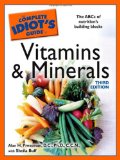|
Potassium is important for the water and electrolyte balance, it caters for a regular heartbeat, regulates the blood pressure and is vital for the transmission of nerve impulses.
Potassium: In Depth
The human body contains ca. 170 g of potassium. As opposed to sodium and chlorine, potassium is almost exclusively found in the internal part of cells. Potassium regulates the blood pressure and the heart beat, is responsible for the sensitivity of muscles and nerves. Potassium is indispensable for the transmission of nerve impulses.
It controls the water and electrolyte balance with the help of sodium and chloride.
Potassium is responsible for certain functions in energy metabolism e.g. it supports the transport processes in the body such as the infiltration of nutritional components into the cells.
Potassium: Requirements, deficiency and oversupply
Recommended intake of Potassium according to the DGE* |
Age |
Male |
Female |
19 - 25 |
2.000 mg |
2.000 mg |
25 - 51 |
2.000 mg |
2.000 mg |
51 - 65 |
2.000 mg |
2.000 mg |
over 65 |
2.000 mg |
2.000 mg |
*Deutsche Gesellschaft für Ernährung - a German Nutrition Society.
Potassium requirements are usually covered. A potassium deficiency can occur if the body loses great amounts of fluids e.g. after long-term diarrhoea, vomiting or a long-term intake of laxatives. A potassium deficiency leads to the weakening of the muscles and heart problems.
Too much potassium can stimulate the kidneys to increase the production of uric acid. Excess potassium in the blood can cause heart failure as it can stop the contraction of the heart muscles. First symptoms include lethargy, crippling and a slower heart beat.
top  |
Potassium in Foods:
Plant foods contain great amounts of potassium.
Potassium rich foods include whole meal products, potatoes, vegetables like spinach and broccoli, lettuce, nuts, champignons, dried fruit, fish and bananas.
Potassium in 100 g food:
Wheat germ: 990 mg
Wheat bran: 1352 mg
Crisp bread: 436 mg
Avocado: 487 mg
Banana: 380 mg
Cantaloupe melon: 330 mg
Curly Kale: 490 mg
Potatoes: 411 mg
Spinach: 554 mg
Peas: 940 mg
Soya beans: 1800 mg
Halibut: 446 mg
Tinned Sardines: 388 mg
Potassium is water soluble. It is transferred from the food to the water during cooking. Instead of discarding the water, it can be used for e.g. for making sauces. In this way a loss of potassium can be prevented.
top 

Understanding Nutrition, Update (with 2010 Dietary Guidelines), Eleanor Noss Whitney, Sharon Rady Rolfes

The Complete Idiot's Guide to Vitamins and Minerals, 3rd Edition, Alan H. Pressman, Sheila Buff
|

